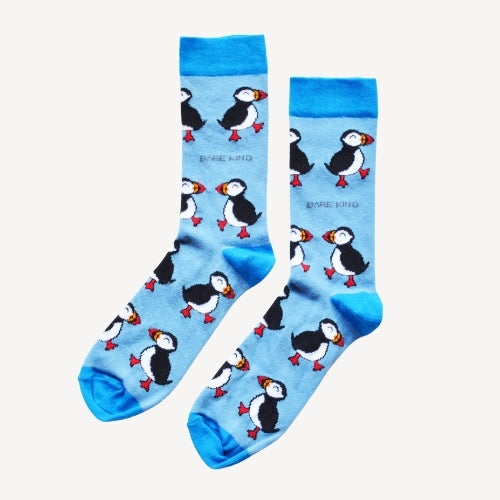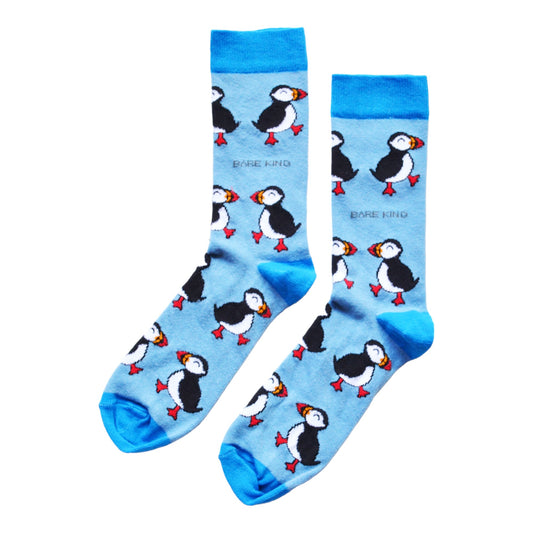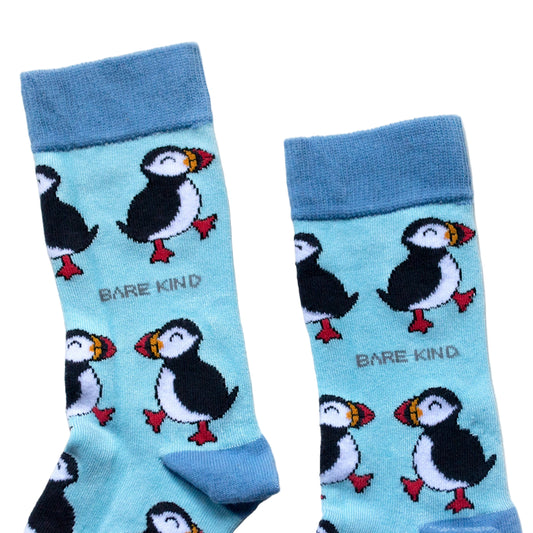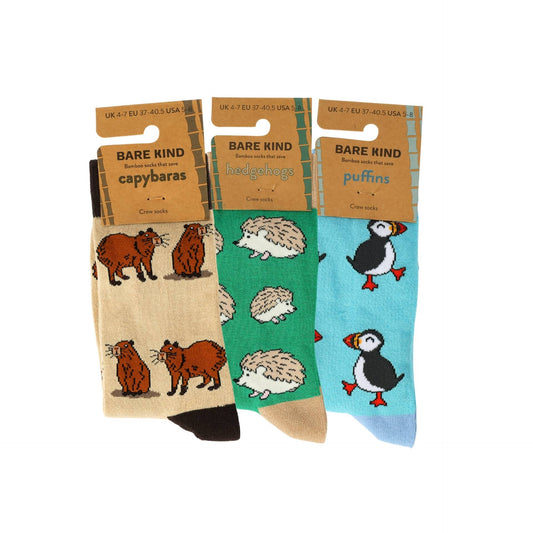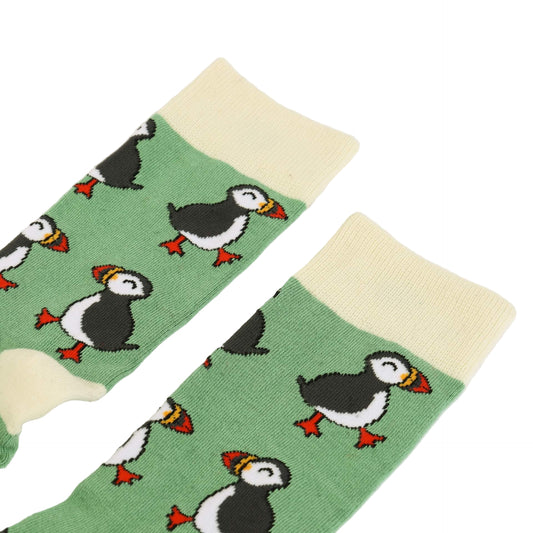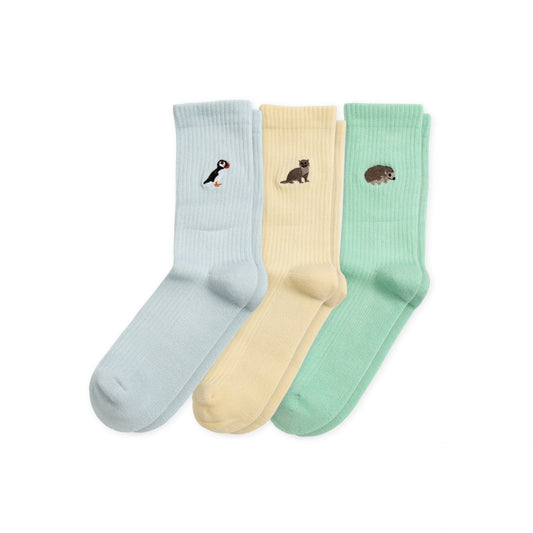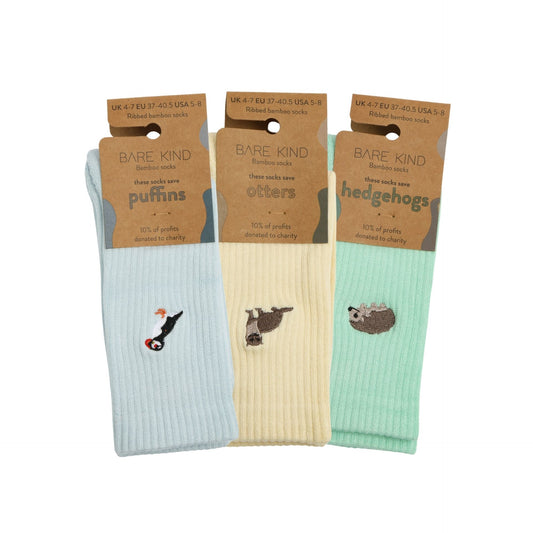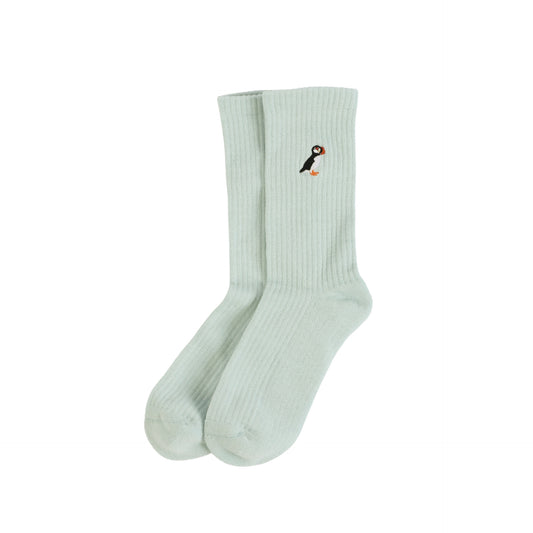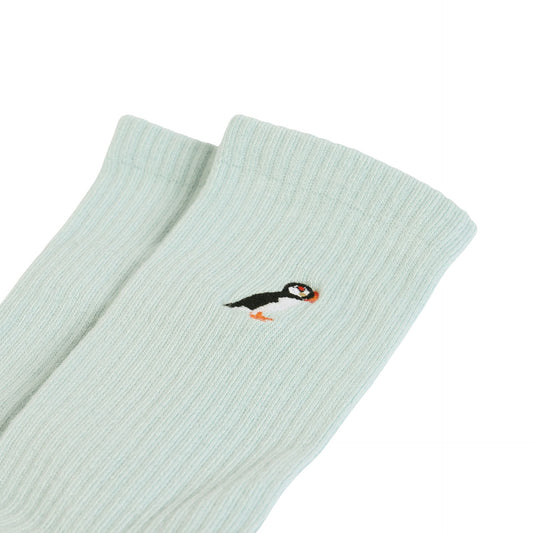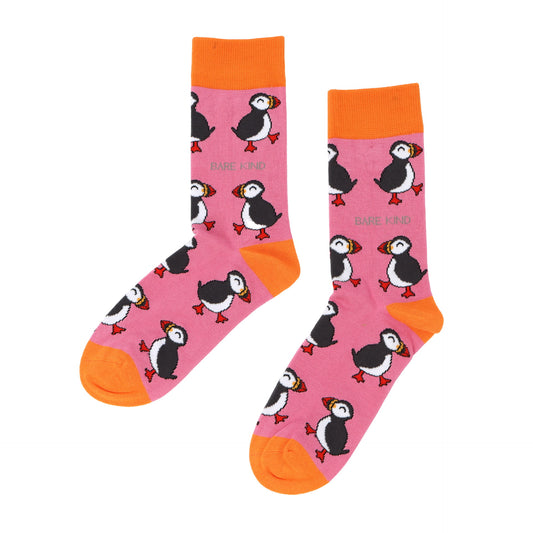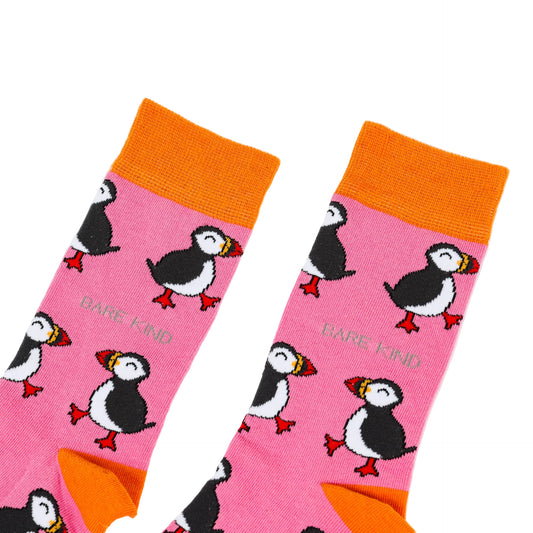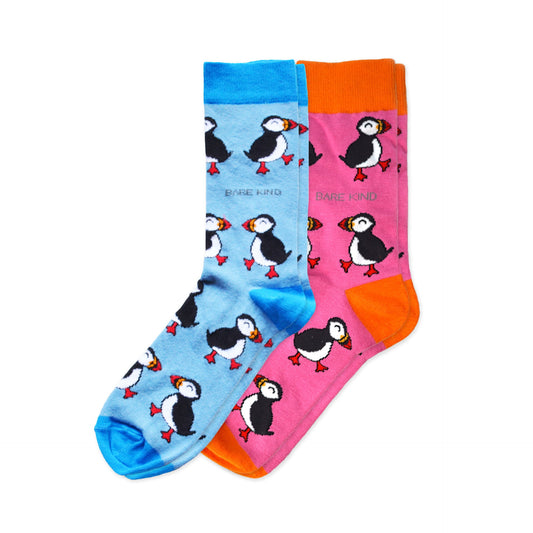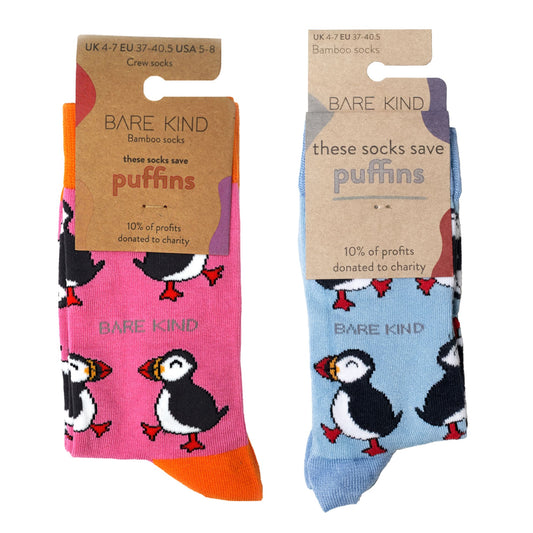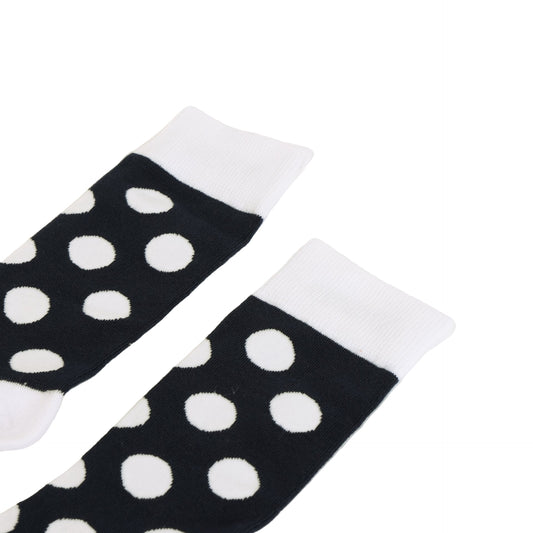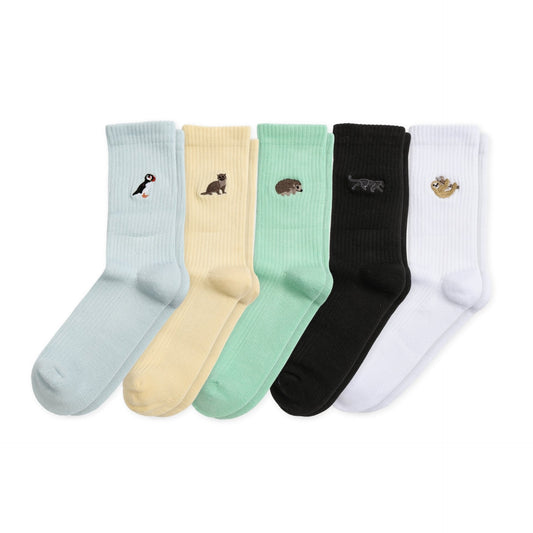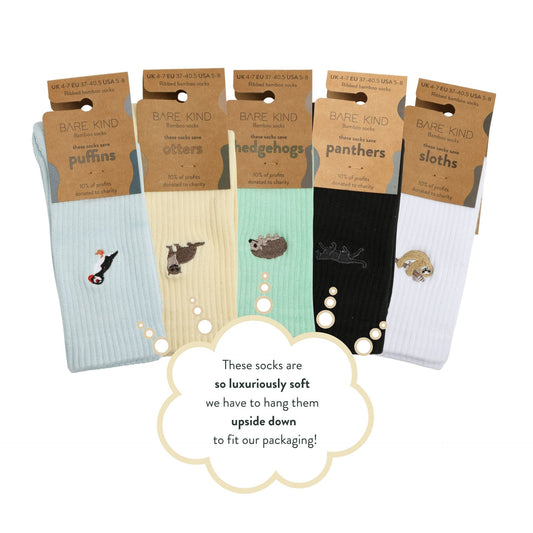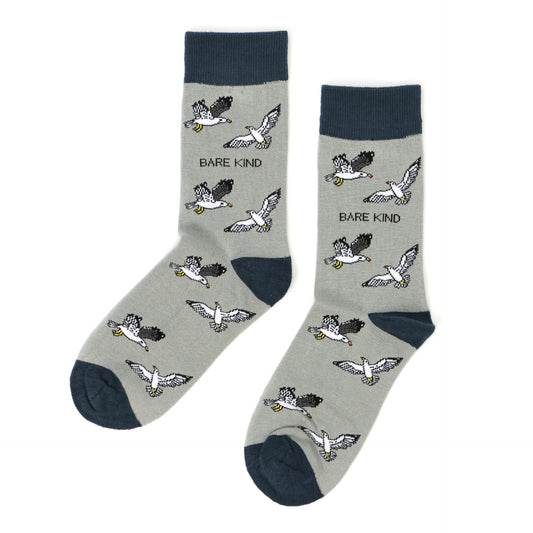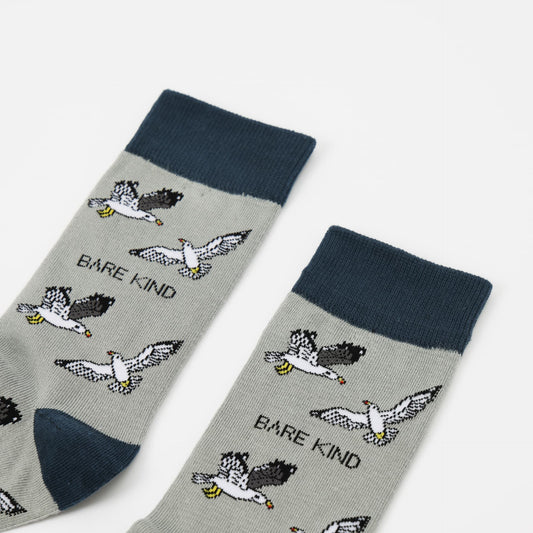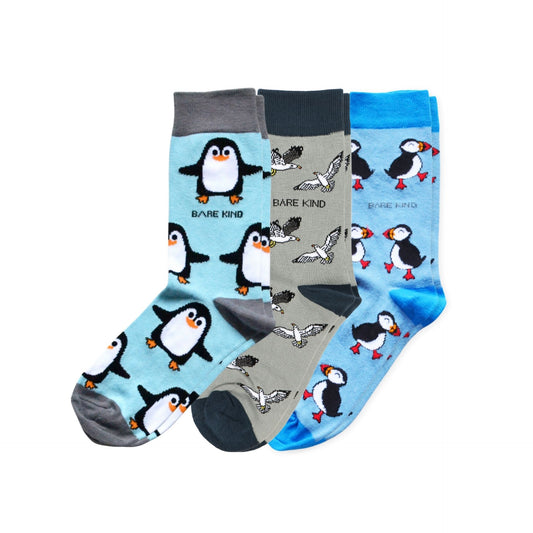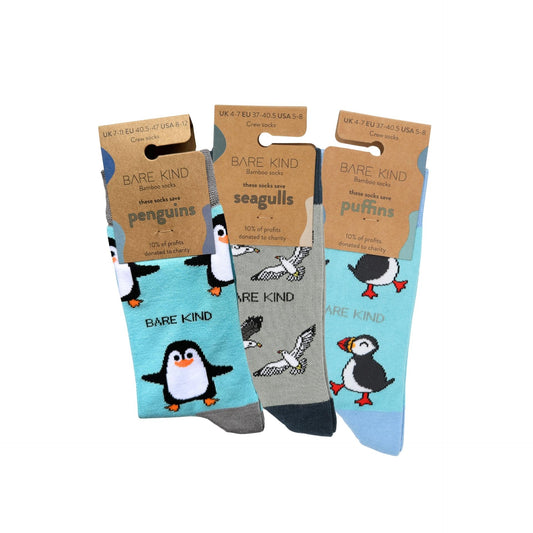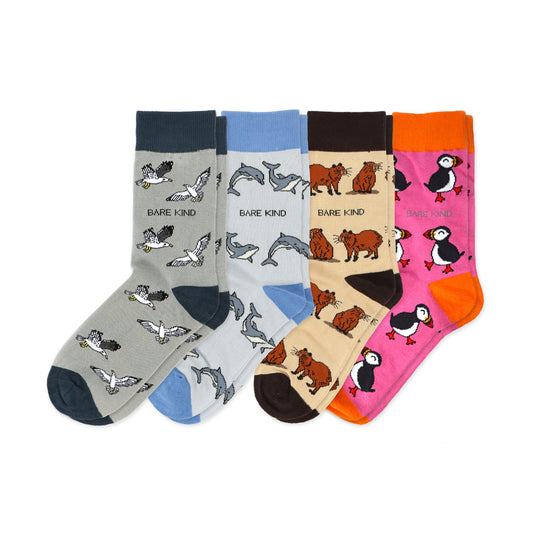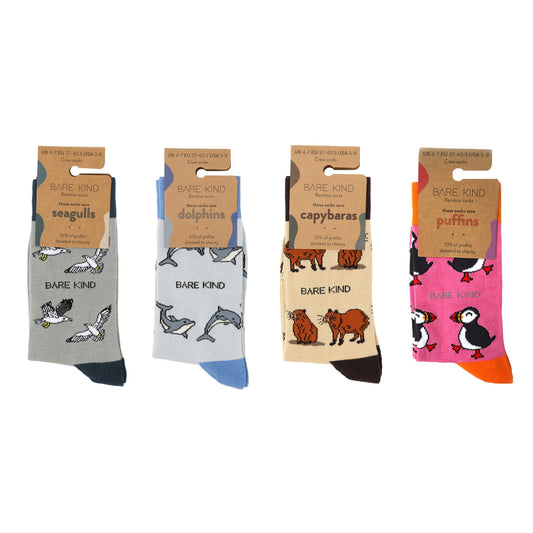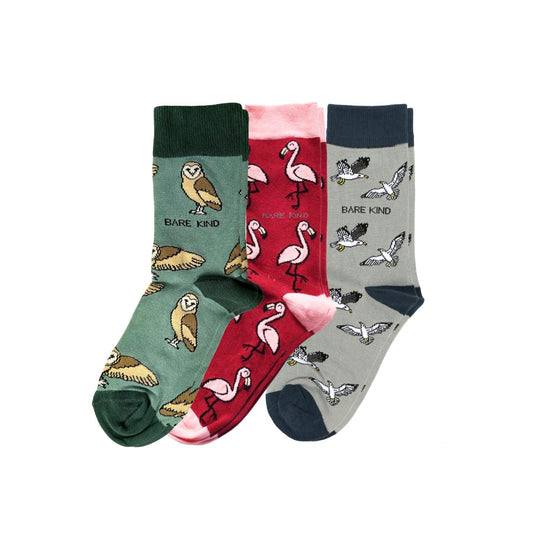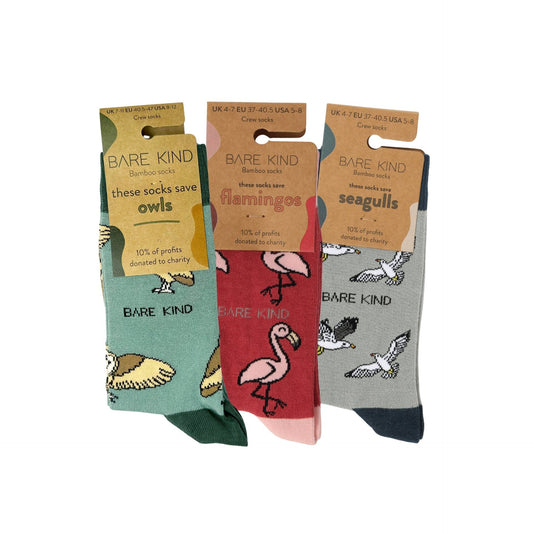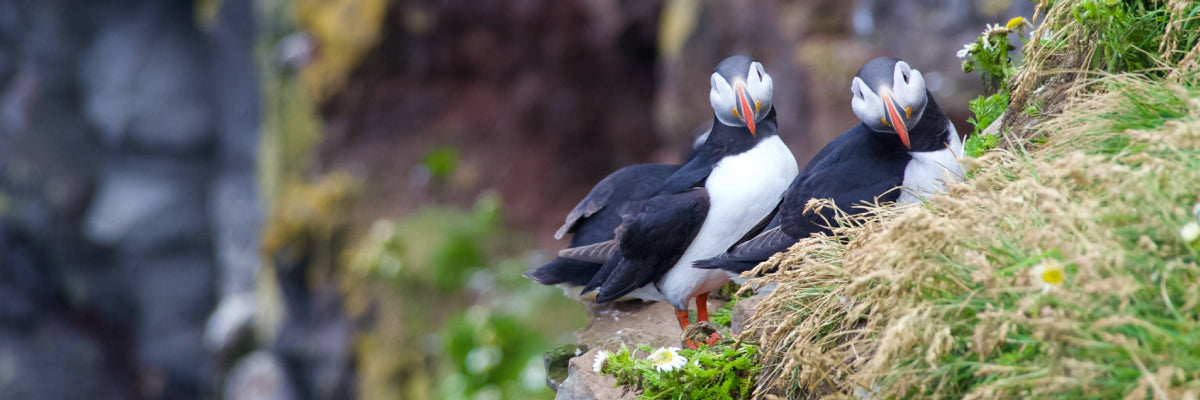
Save the Puffins and Seagulls with Scottish Seabird Centre
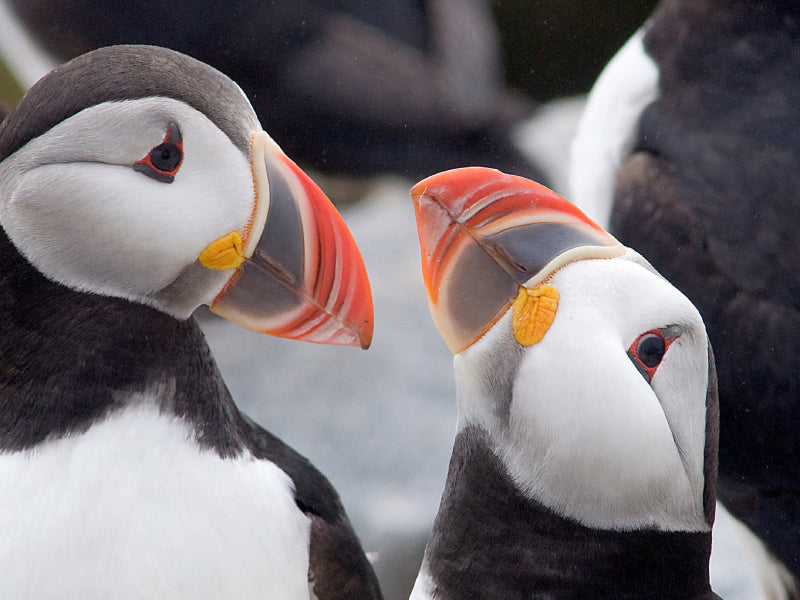
Puffins are one of the UK's most beloved and iconic seabirds, but they are currently under threat due to a range of factors including climate change, overfishing, and habitat loss.
The UK's puffin population has declined by over 30% in the past decade, and they are now listed as "vulnerable" to extinction by the International Union for Conservation of Nature (IUCN).
There are several reasons why it is important to help puffins in the UK. First and foremost, puffins are an important indicator species for the health of marine ecosystems.
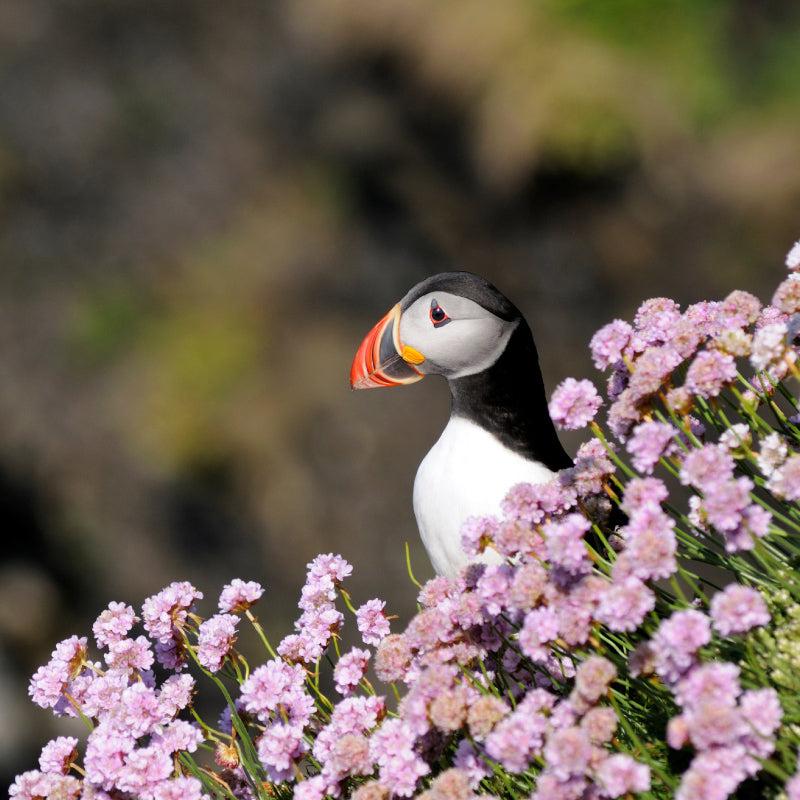
By protecting puffin populations, we can help to ensure the health and sustainability of the entire marine environment.
Additionally, puffins are an important part of the UK's natural and cultural heritage, and their loss would be a significant blow to the country's biodiversity and tourism industry.
Charities working to protect puffins in the UK are focusing on measures such as habitat restoration, reducing pollution and overfishing, and monitoring and research to better understand the factors that are contributing to their decline.
By supporting these efforts, we can help to ensure that future generations will be able to enjoy the sight of these beautiful birds on the UK's coastlines.
The population of puffins in the UK has declined by over 30% in the past decade, and they are now listed as "vulnerable" to extinction.
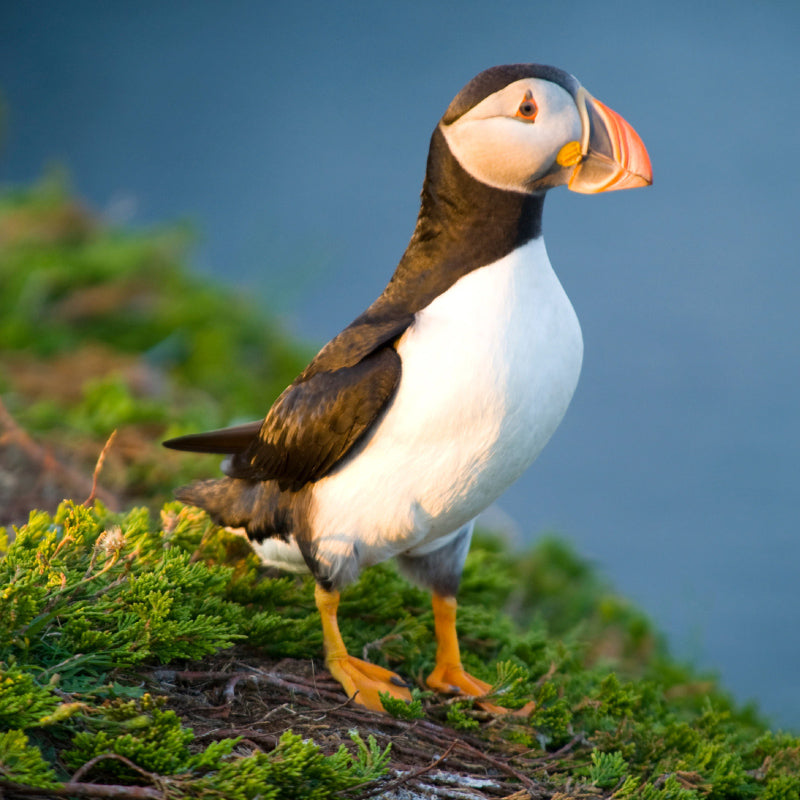
The Scottish Seabird Centre is a charity based in North Berwick, Scotland, that aims to promote the conservation and welfare of seabirds in the UK. Their work is important because seabird populations in the UK have been declining for decades due to a range of factors including climate change, habitat loss, and pollution.
The charity's main focus is on education and public engagement, with a range of exhibits, events, and activities designed to raise awareness of the importance of seabirds and their habitats. They also carry out research and monitoring of seabird populations, working with partner organisations to develop conservation strategies and implement practical measures to protect these birds.
In addition to their work on seabirds, the Scottish Seabird Centre also operates a rescue and rehabilitation centre for marine wildlife, providing care and support to sick and injured animals such as seals, otters, and dolphins. Overall, their work is vital for ensuring the continued survival of Scotland's rich and diverse marine ecosystem, and for inspiring the next generation of conservationists and wildlife enthusiasts.
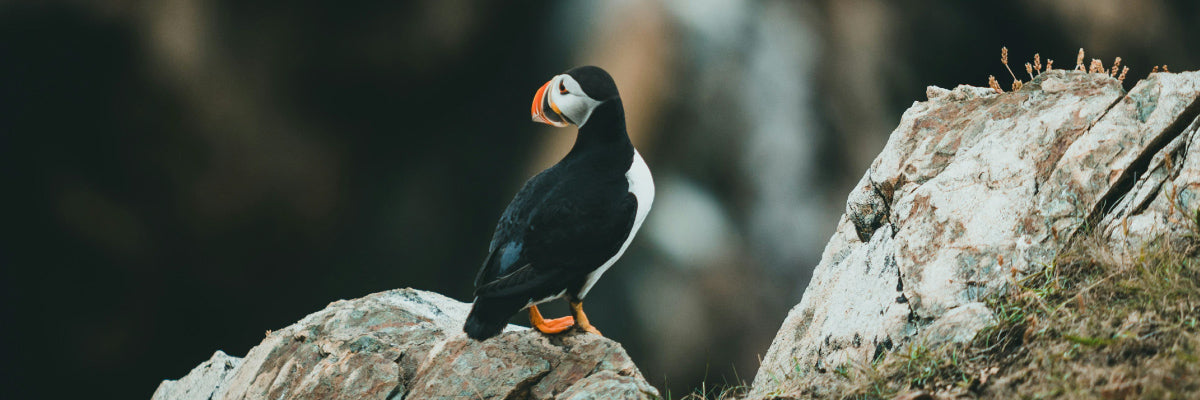
We funded projects such as an SOS puffin project that cleared invasive tree mallow from Scottish Islands.
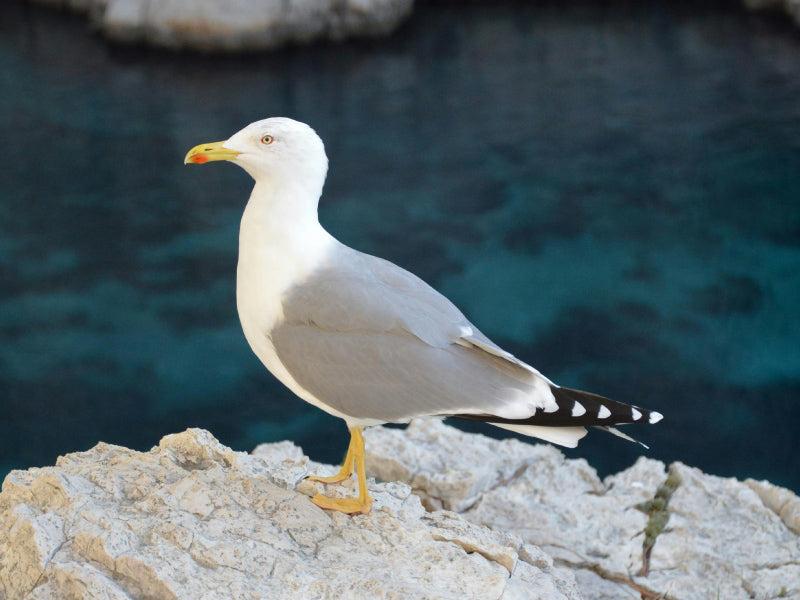
Seagulls are masters of the seashore. They can live practically anywhere—beaches, cities, parking lots, name it. While they’re often associated with the coast, there are actually many species of gulls that live inland too. What makes seagulls such formidable creatures is their sharp intelligence. Studies have shown that they can count, use tools, and even follow human behavior to score an easy meal. Though seagulls can survive in almost any environment, their population is decreasing over time. This is due to oil spills, habitat destruction, human disturbance and fishing activities.
We donate 10% of profits from your puffin and seagull socks to
-
Save the Puffins Bamboo Socks
Regular price £9.99Regular price -
The Ultimate Bestselling Trio Bundle of 3
Regular price £26.97Regular price£29.97Sale price £26.97Sale -
Save the Green Puffin Bamboo Socks
Regular price £9.99Regular price -
Ribbed Summer Sorbet Collection 3 Pack
Regular price £35.97Regular price£38.97Sale price £35.97Sale -
Save the Puffin Ribbed Bamboo Socks
Regular price £12.99Regular price -
Save the Pink Puffin Bamboo Socks
Regular price £9.99Regular price -
Save the Puffin Small Motif Bamboo Socks
Regular price £9.99Regular price -
Puffin Couple 2 Pack Bamboo Sock Set
Regular price £17.98Regular price£19.98Sale price £17.98Sale -
Save the Polka Dot Puffin Bamboo Socks
Regular price £9.99Regular price -
Full Ribbed Bundle 5 Pack Bamboo Sock Set
Regular price £59.95Regular price£64.95Sale price £59.95Sale
-
Save the Seagull Bamboo Socks
Regular price £9.99Regular price£9.99Sale price £9.99 -
The Seabird Bundle of 3
Regular price £26.97Regular price£29.97Sale price £26.97Sale -
Animal Antics 4 Pack Bamboo Sock Set
Regular price £35.96Regular price£39.96Sale price £35.96Sale -
Grey Lover 3 Bamboo Sock Set
Regular price £26.97Regular price£29.97Sale price £26.97Sale -
The Flying Friends Bundle of 3
Regular price £26.97Regular price£29.97Sale price £26.97Sale
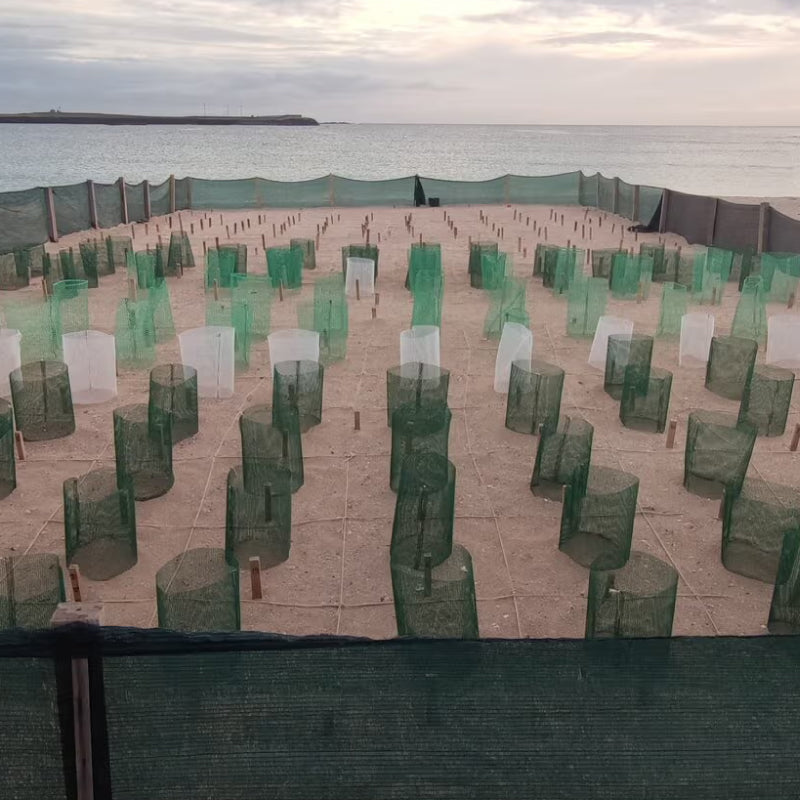
Our philosophy
Restoring the biodiversity of our planet and its varied species is at the core of Bare Kind’s mission. By donating 10% of gross profits to charities that support the animals on our socks, we can continue fighting the fight against species extinction.
Bare Kind has been able to achieve an all-time high of donations in recent years. The business expanded its sock range to 40+ pairs and supports 35+ charities.
Our Charity Impact Reports highlight the projects we have been able to fund with our charity partners and the incredible animals we support.
Our hope is that something as humble as a pair of socks can make a lasting impression on our world and change it for the better. A huge thank you goes out to all our customers who have wanted to make a difference and empower the restoration of our planet with their socks.
Recent blog posts
View all-

Why Are Socks the Best No-Nonsense Gift for Sec...
Grace MicereWhy Are Socks the Best No-Nonsense Gift for Sec...
Grace Micere -

5 Qualities to Look for When Buying Stocking St...
Grace Micere5 Qualities to Look for When Buying Stocking St...
Grace Micere -

How to Shop Smart This Black Friday 2025? (5 Se...
Grace MicereHow to Shop Smart This Black Friday 2025? (5 Se...
Grace Micere
